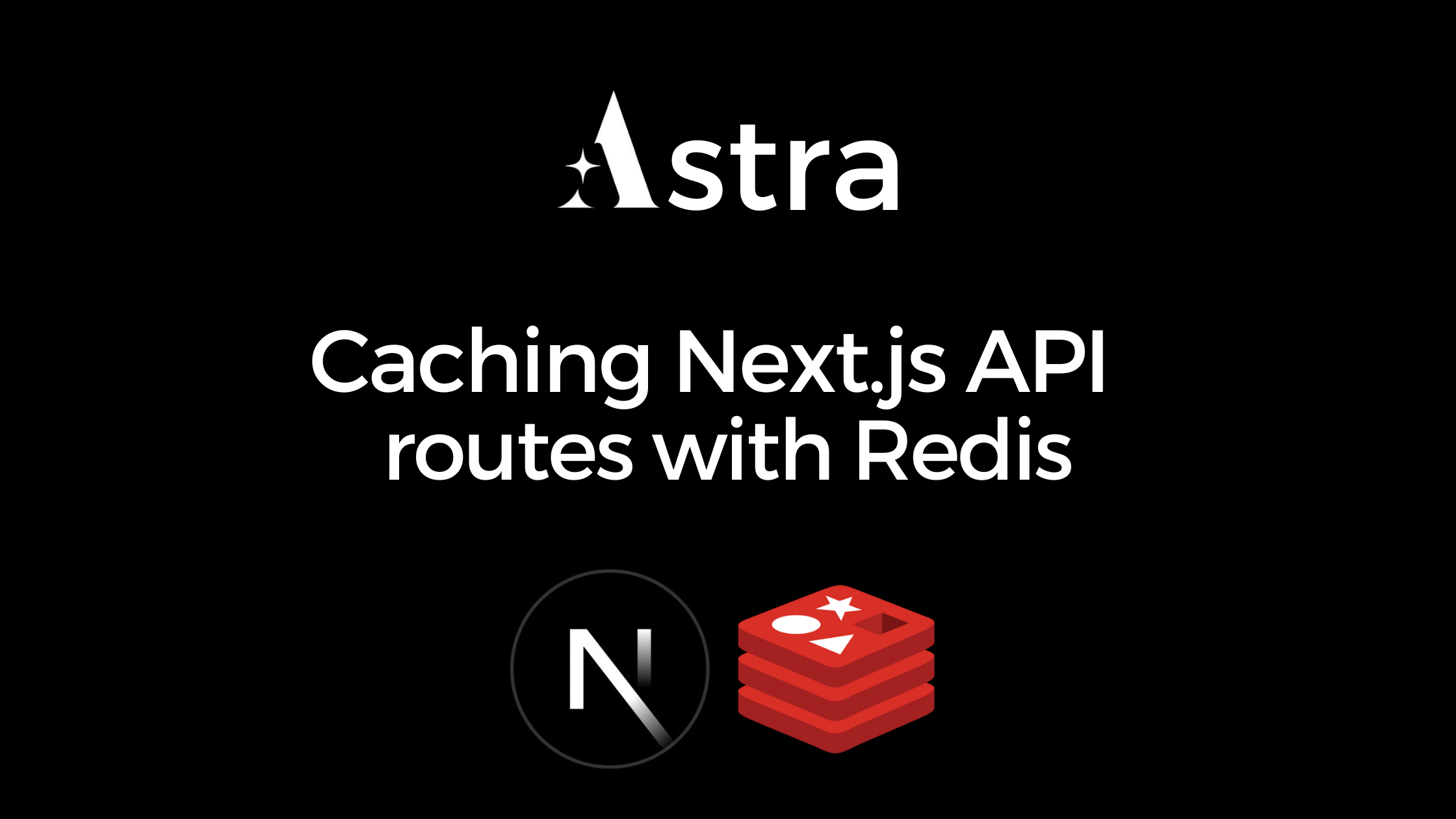
Written by: Anurag Sharma
Caching Next.js API routes with Redis
Cache a Next. js Serverless API with Redis
Last updated on July 11, 2024
Here is the time difference we observed after caching the API routes with Redis.
So I recently started to observe the response time of api.crackeddevs.com started to increase due to lot of traffic and huge amount of data being fetched from the database.
So I decided to cache the API routes with Redis.

What is Redis?
Redis is an open source in-memory data structure store which uses Key-Value pair to store data. And its blazingly fast.
So now the question was which Redis provider to use and we came to conclusion with two options:
So with some discussion and a suggestion from my friend Yashwanth we decided to go with Upstash's Redis.
We used Upstash JS SDK to connect to the Redis instance and store the data in the cache.
Installation
npm i @upstash/redis
Importing the Redis SDK
import { Redis } from "@upstash/redis";
Initialization Redis Object
const redis = new Redis({ url:`${process.env.UPSTASH_REDIS_REST_URL}`, token:` ${process.env.UPSTASH_REDIS_REST_TOKEN}`, });
It needs two environment variables UPSTASH_REDIS_REST_URL and
UPSTASH_REDIS_REST_TOKEN which can be found in the Upstash dashboard.
Creating Redis Key
const RedisKey = `jobs:.....\n`; // unique key
Adding a response to Redis with expiry time
await redis.set(RedisKey,JSON.stringify(data)); // stores the object as string awaitredis.expire(RedisKey, 600); // 10 minutes
Retrieving the data from Redis
const CachedData= awaitredis.get(jobRedisKey);
Conditional to check if cache exists , if yes then return cache
if (CachedData) { // If data is found in cache, parse it if it's a string and return console.log('cache HIT'); const data = typeof CachedData === 'string' // checks if the data is string if yes then parse it ? JSON.parse(CachedData) : CachedData; return NextResponse.json(data); // return the cached data }
So the final code looks like this
import { NextResponse } from 'next/server'; import { Redis } from '@upstash/redis'; const redis = new Redis({ url:`${process.env.UPSTASH_REDIS_REST_URL}`, token:` ${process.env.UPSTASH_REDIS_REST_TOKEN}`, }); const RedisKey = `jobs:.....\n`; // unique key export default async function handler(req, res) { const CachedData= awaitredis.get(jobRedisKey); if (CachedData) { // If data is found in cache, parse it if it's a string and return console.log('cache HIT'); const data = typeof CachedData === 'string' // checks if the data is string if yes then parse it ? JSON.parse(CachedData) : CachedData; return NextResponse.json(data); // return the cached data } const response = await fetch('https://jobs.github.com/positions.json?description=javascript&location=remote'); // fetching example but can be anything const data = await response.json(); await redis.set(RedisKey,JSON.stringify(data)); // stores the object as string awaitredis.expire(RedisKey, 600); // 10 minutes return NextResponse.json(data); }
So that's it , I hope you enjoyed reading this article. Have a great day ahead . ☀️